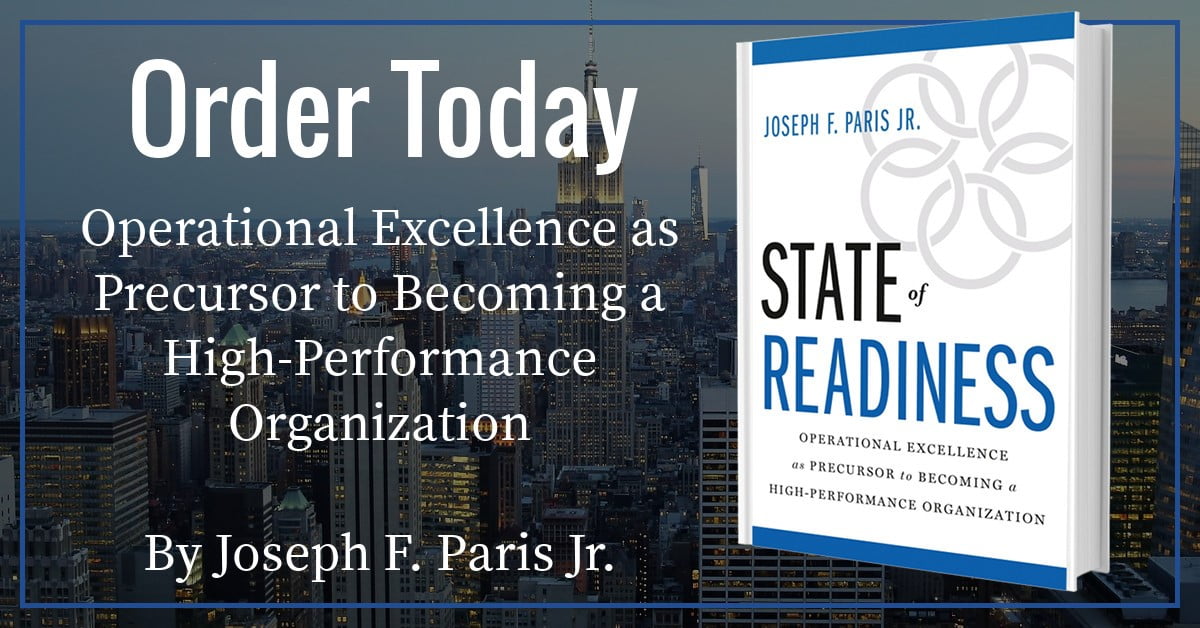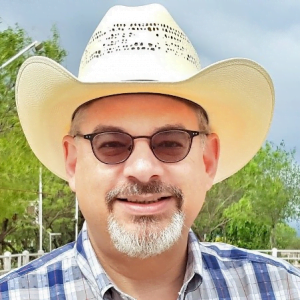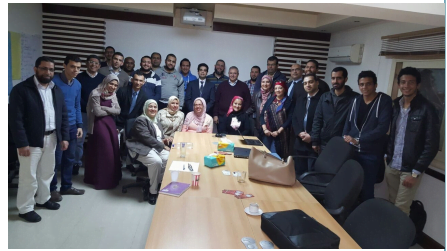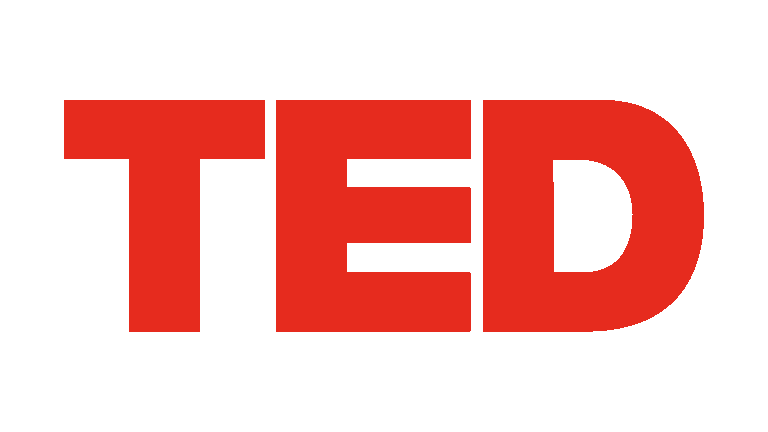The Year in Review
It’s been another one of “those years”… However, it is certainly not as bad as everyone thinks – or the media would have you believe – or the politicians would manipulate you into behaving as if it is. If you follow the news (and I am sure you do), the year has been one long drama full of strife and turmoil; Arab Spring, Occupy Wall-Street, the corrosive political environment that exists in the States, the ugliness of the drug wars in Mexico – to name just a few.
Then there is the ongoing rolling drama in the financial markets demonstrative of the incompetence and lack of leadership that exists in the countries of the Eurozone and in the States – where half-measures and self-inflicted wounds are preferred over the bold and decisive actions that are necessary. It seems that everyone prefers to “kick the can down the road” to the next group of lawmakers than to step-up and demonstrate the leadership people are craving.
In the Eurozone it’s become a farce. There have been a dozen “deadlines” beyond which supposedly lay fiscal Armageddon for the Eurozone (and, in fact, the world). Each deadline comes with great energy and excitement being expended – but with no real solution enacted – and leaves with a whimper and a promise that something will be done by a new deadline. Each time the doomsday prophesies espoused are left unfulfilled and the world is left incrementally desensitized and skeptical that such a problem truly exists at all.
This pattern repeats time and again – until the entire story lacks credibility. And so it goes…
The only good news about the rolling Eurozone “crisis” is that it takes attention off of the States and China and the fundamental structural issues in their own financial houses.
At least China has a lot of cash-on-hand available to fight any fiscal fire that might occur – unlike the States. The States have the reserve currency – unlike the Euro. Anyone who doubts this should read this article in Bloomberg. Nobody ever hears of the States (or anyone, for that matter) running to the Euro when their house is on fire. No; when there is a fire, everyone runs to the dollar to keep the money flowing – even those in the Eurozone run to the dollar.
People, and companies, seek to embrace stability. Without stability, they will play “defense” and horde whatever cash and treasures they can. In times such as these, they will pay-down debt instead of spending and investing. While these might be long-overdue and noble traits, it is directly contraire to what is necessary to expand an economy and governments should keep this in mind when predicting the future and their budgets.
Companies remember just a few years ago, when they could not get loans from banks because the credit-markets dried-up. This put many in a precarious cash-flow situation, sometimes threatening their very existence. The risks to the financial markets, and resultantly to companies, are as great today as they were back in 2007/2008. Remembering the lessons learned back then, companies are naturally hording their cash like squirrels horde acorns in preparation of winter – they don’t want to find themselves out in the cold starving to death. Rightfully and naturally so, people are behaving in precisely the same manner.
As we enter the fifth year of fiscal turmoil, maybe companies and people are beginning to adapt to the new normal – where chaos and political ineptitude in government and economic uncertainty are the expectation and define the new “natural state”. Maybe consistent instability, in itself, is stability.
We certainly feel more “YO-YO” – You’re On Your Own.
Maybe, longer term, this is good for everyone.
“Gluttony”, it is said, is one of the Seven Deadly Sins. Incrementally since the Great Depression, people have consumed more and more with an emphasis on surrounding themselves with things – things we don’t need. For instance, how many toys are bought as Christmas presents that are opened and never enjoyed? How many toys are broken on Christmas Day with reaction of the people (giving and receiving) is that this is to be anticipated and is accepted – and the toy is discarded? When (and why) did people become tolerant of such poor expectations?
Maybe the result of the past few years will be somewhat similar to those who lived during the Great Depression. Maybe we will be more mindful of waste. Maybe we will be more pragmatic with our financial resources and planning. Perhaps as a result, we will consume less of the Earth’s resources as we place more emphasis on conservation and renewables. Who knows, maybe we will even accelerate the development of more efficient means so as to be less dependent on everyone and everything.
The dawn of a new Libertarian Age might be upon us – much to the woe of politicians.
Yes, we will all get through this. It’s never as bad as the news media would have you believe. We should all guard against being whipped into a frenzy as the politicians try to manipulate us into blaming and fighting one another.
Homework assignment; Everyone should read, “The Millionaire Next Door.” If you already have, please read it again. There is a lot of good advice in that book for everyone.
As for me, I am ending the year much as I began it – in Seligenstadt, Germany. Here I will spend the Holidays relaxing and making merry with my family and some new friends I have met.
I will also take some time to reach out to old friends who are scattered around the world; to catch-up with their goings-on and to wish them well.
I will also take time to finish writing that book everyone has been pestering me to write (well, more start than finish, actually).
The New Year is a time to reflect on the past, plan for the future and heal any wounds that might have been inflicted and endured during the past year – so that I can re-engage with renewed vigor and rededication.
The only hazard of taking time from my normal pace is that I get a bit restless after a few weeks and increasingly find myself wanting to get back in the fight.
By the time I am set to go back out into the world, I find myself feeling exactly like the “XONITEK Mouse”…
… Need the Cheese, Get the Cheese. Knock-down anything that’s in the way.

My first speaking engagement of 2011 was at the International Conference on Operational Excellence for Global Competitiveness (ICOEGC-2011) in Bangalore, India at the RV College of Engineering (RCVE). Here I delivered a Pre-Conference Workshop on “Leveraged Learning” – a key component of a company’s “Deliberate Improvement” program where the existing and own “best practices” are discovered and then replicated across the enterprise.
I also delivered the Conference Keynote entitled “A Frictionless World”. It was a good start to the year.
Bangalore was fascinating. All the hustle and bustle of the people – it seemed like bottled chaos. But everyone I met was very kind, helpful and nice.
My good friend, Ajit Bhattacharjya (owner of ABCON and a sponsor of  the conference) and Dr Suresh, Dean of the Industrial Engineering and Management School at RCVE invited me on a day-tour to Mysore. It was a great day of adventure, exotic foods and a complete immersion in the culture of India.
the conference) and Dr Suresh, Dean of the Industrial Engineering and Management School at RCVE invited me on a day-tour to Mysore. It was a great day of adventure, exotic foods and a complete immersion in the culture of India.
– Hint for Westerner’s: Bring toilet paper with you… everywhere and always.
One of my colleagues, Malgorzata Krukowska, introduced me and my writing to Alicja Kostecka, editor of Eurologistics Magazine in Poland. Ever since, my articles (translated into Polish) have been included in every issue.
So I was very surprised and honored that Eurologistics asked me to be the lead-off Keynote Speaker at their Conference scheduled for the beginning of March.
There were far more delegates than I had anticipated and the group was very energetic.
Other than the obvious and expected, such as contacts and opportunity, I gained a lot from this conference in other respects.
Mostly what I gained was an appreciation for the profound and indelible enthusiasm among the delegates – both Poles and non-Poles – for the opportunities that exist in Poland and for its future.
Everyone I met was smart, engaged and had a sense of purpose. If there was one cause for concern it was that the old “apparatchiks” were still leading many companies and stifling opportunity to evolve and innovate – indeed, risking their very existence.
I have been a member of the Institute of Industrial Engineers (IIE) for almost a decade and I have been going to their Annual Conference for as long.
This year, the conference was held in May in Reno, Nevada. I decided to fly into San Francisco, California a couple of days ahead of the conference for acclimation to the time change from Frankfurt, Germany and to meet with some of my colleagues (one of which lives in San Jose, California).
I took a new Lufthansa Airbus-380 direct from FRA to SFO. Although I was in “cattle-class”, the flight was the best I ever had – very quiet and comfortable.
– Hint: Take a window seat… there is more room.
One of my colleagues, Rick Hulse, joined me in San Francisco. We both woke early on our only full day in the city and we decided to take a “walk”.
Starting at the Ritz-Carlton (see map), we walked across to Haight & Ashbury, thru Golden Gate Park to the Golden Gate Bridge, across Crissy Field to Fisherman’s Wharf and back to the Ritz. All in, it was 23 miles of walking – the last few miles felt like the Bataan Death March. Our dogs were barkin’.
The next day, Mike Borzumate (a colleague who lives in San Jose) joined Rick and me for the journey to Reno and to attend the conference.
Of course, Napa Valley, California is on the way to Reno and we simply could not make it the entire way there without stopping. Fortunately, Mike anticipated this and organized a tour of the Robert Mondavi Winery. It was a really great tour and we learned of the considerable science behind the making of wine.
I will admit though, when we got to the cellar full of aging wines by the barrel – I didn’t think I was going to be able to leave.
– Damn you Mike and Rick for draggin’ me out!
After San Francisco and Napa Valley – Reno was quite a disappointment. In fact, it is on my list of least-favorite cities and I will probably never go back again – artificial and boring.
The break-out track of the IIE Process Industries Division (PID) was a reasonable success with some very excellent talks and speakers.
– The IIE-PID Advisory Board; We ain’t pretty, but we seem to get the job done.
The venues for XONITEK’s EU-2011 Operational Excellence Summits were at the British Embassy in Budapest, Hungary and at the Federation of Scientific and Technical Associations in Milan, Italy.
The speaker-roster for the summits this year was very impressive and included Carey “Vixen” Lohrenz – a Naval Aviator who flew F-14’s as well as OpEx professionals from Robert Bosch, Siemens, Google and GE Finance.
After the EU Summits, we debriefed for a couple of days in Venice, Italy – doing a critical self-assessment of what worked and what didn’t work in the production of the Summits and execution of the Summits themselves.
I find that good and honest debriefs are often best facilitated by the consumption of good food and wine combined with casual meandering both by foot and by boat around the stunning antiquities that are to be found in Venice and the surrounding islands.
– Factoid: Saw a brown gondola – it was UPS.
We capped-off the EU-2012 Operational Excellence Summit with a strategy meeting and team building retreat in the Aegean Sea where we all learned how to sail and earned our “Competent Crew Certification” from the Aegean Sailing School of the Royal Yachting Association (RYA).
Along with me – the Managing Directors of XONITEK: Germany (Martin Haack), United Kingdom (David Boyman) and United States (Rick Hulse) were all on-hand to learn to work together, trust one another and collectively define a vision of the future.
The summer in Germany was not the best. It rained a lot in July and
didn’t really clear until the middle of August – just in time for school to start. It was still enjoyable, just could have been better.
With the autumn came more travels for me and more talks – starting again with Warsaw, Poland. This time, the host was Windmill, Gasiewski & Roman and I was asked to speak at their monthly “Coffeehouse” networking mixer held at the “Pure Sky Club”.
It was here at this event where I debuted a summary of my latest talk which I had been working on over the summer entitled “Guerilla Transformation; Turning an Insurgency into a Movement”. The talk is a bit contrarian as it delves into why people become cynical in their positions over time, which leads to their being contemptuous and ultimately kills innovation and motivation. It begs the question; “How is it that we become surrounded by the lazy and uninspired if we hire the best and brightest?”
Even though the “Coffeehouse” was a bit less intense and less formal than many of the events and conferences I attend throughout the year, this particular mixer got me thinking.
There are over 16,000 members of the Operational Excellence Linked-In Group – a group I own. How can I cook-up the energy level just a notch? How can I increase the level of engagement and relevance of the content?
How can I; “Make it real”? Hmmm…
I was asked to Chair the Operational Excellence MENA Conference in Abu Dhabi, UAE hosted by IQPC and held in late September. I had never been to Abu Dhabi, but it had been on my hit list for quite some time.
In my reading of the goings-on in the UAE, the country seems to realize that oil and gas is a finite resource and have embarked on considerable and sustained investments to diversify from this single income source – usually on a grand scale when they do (ie. biggest, best, only, etc.).
A few days before the conference, the producer of the event from IQPC (Michael Israel), notified me that one of the speakers had dropped-out and asked if I could step in with a talk. It was time to deliver the full version of my “Guerilla Transformation” talk.
I spoke about corporate culture, about game theory and how a Nash Equilibrium exists, how it will take an external disruptor with destructive power (whether exercised or not) to be introduced before true transformational change can occur, and with the result being a re-invigorated passion for innovation and drive to succeed.
A week after Abu Dhabi I was back in Warsaw with my friends at Eurologistics speaking at their second Conference of the year for me. This was the conference where I was actually supposed to debut “Guerilla Transformation” – but the dry-run in Abu Dhabi afforded me the opportunity to fine-tune the content and delivery.
This time, I was asked the day before if I could deliver a talk on “Leadership”. Well, I didn’t have an actual talk prepared – but it is a topic that is near and dear to me. So I worked the day before the event on developing a talk. It wasn’t pretty – no graphics and the like. However, it was passionate, powerful and challenging. It was a somewhat polarizing talk and caused a great deal of conversation, engagement and push-back from the audience. It passed the ultimate test – in that it was very well received by the audience. HUA!
There was one message which was received as controversial – fire the irrecoverably weak or the nonconvertible cynics and the insubordinate. Everyone works as a team member. If a member is weak, try to fix them, support them, augment them and otherwise try to help them. If they can’t be fixed, then they have to be transferred to a place where they can excel and be a valuable asset. If such a place in the company does not exist, then it is your duty to let them go.
In the case of the cynics and the insubordinate – just fire them. They are poison to the team and to the organization and – no matter what actions are taken – they will only continue to spread their poison.
They may be useful someplace, in some other organization – but not with you in yours.
This I know from observation, from engagements and from experience. Trust me on this.
The end of October found me in one of my favorite places addressing one of my favorite conferences at my favorite University. It was Monterrey, Mexico where I was the Keynote Speaker at the 18th Annual Industrial Congress hosted by the Instituto Tecnológico y de Estudios Superiores de Monterrey (ITESM).
I spent the first few days after my arrival in Monterrey with one of my good friends, Angel Montemayor, at his family’s ranch. I met Angel at my first Industrial Congress in Monterrey when he was a student.
I remember the first time I spoke at the Industrial Congress six years ago – there were thousands of people in the audience, two huge screens projecting images of me as I spoke, gigantic stage. It was very intimidating. This time was just like the first and I approached it the same way – I swung for the fences. I belted out my talk with passion, conviction and clarity. It was very well received. I do enjoy Monterrey.
Earlier in this year, and in this article, I talked about Operational Excellence, the Operational Excellence LinkedIn Group and a desire to “make it real”.
For those who don’t know, I define Operational Excellence as; “Increasing the performance of companies AND the circumstances of those who work for them.” This is accomplished by instilling leadership and communication skills throughout an organization and by continually and deliberately improving an organizations ability to execute – leveraging the methods and tools of Lean Six-Sigma as appropriate in an engineered and designed fashion across systems. The resultant increase in company performance should directly and positively impact the circumstances of those who work there by: offering a more stable work environment, increasing pride in ownership as a stakeholder, better and safer working conditions, and a more collaborative atmosphere with less strife between the employment classes.
Most of us leverage social networking such as Facebook and LinkedIn – admittedly to varying degrees of intensity. We “connect” with or “friend” others – most of which we probably don’t know very well (or even at all). We join various groups just because their title is a topic which is of some interest or otherwise resonates with us. But what do we really gain from our participation? Do we even participate ourselves? This challenge is especially true of “Professional Social Networks” such as LinkedIn.
I looked at the Operational Excellence Group and saw that there were over 16,000 members (and growing at about 200 members per week). I saw that the members were from all over the globe and from a wide range of industry. I also saw that the volume of knowledge transactions (discussions, comments, etc…) was far less than I would have anticipated given a group of such size. I wondered how, or if, the level of intensity could be increased.
Then I thought about my experiences with IIE and the IIE-PID. We have monthly conference calls to discuss topics that are relevant to the members of this professional peer group. We also meet once per year at the Annual IIE Conference.
I also thought about another organization called the Southern Tier Opportunity Coalition (STOC) of which I was a member when I lived back in Binghamton, New York. The STOC met once per month, always on the same day of the month (second Monday), and almost always at the same venue. This made it easy to remember to attend if you happened to be in town that day.
Then I started thinking; “What if I were to start a local subgroup of Operational Excellence dedicated to members sharing knowledge and experiences relevent to the members of the group in a consistent face-to-face, networking environment?” This was the genesis of the Operational Excellence Society.
From inception to launch took three months – with the first step being the creation of the Operational Excellence Society subgroup on LinkedIn to support the initiative’s endeavors.
We then planned and executed inaugural meetings for Chapters in Warsaw, Munich and New York City during the month of November. Each meeting was a considerable success with solid attendance and, most importantly, the resolve of the attendees to take the project on as their own and continue the initiative. We even gained the support of the editor of the Lean Management Journal, Roberto Priolo.
So what’s in store for 2012?
I will finish my book. This is a recurring action-item and 2012 is when it gets done.
I will continue to devote my energy to the mantra of Operational Excellence – always trying to improve a company’s performance AND the circumstances of the people who work there.
I will try not to get manipulated or sucked into the drama of politics and fiscal malfeasance, and instead concentrate my efforts where I can have a positive impact – helping those who want to be helped.
I will continue to seek enjoyment in my personal and professional life each and every day – always keeping in mind; “If you love what you do, you will never work a day in your life.”
And so as we come to the end of another year; we find ourselves reflective of the past’s hard fought battles, won and lost; of loves arrived and departed, and of business successes and disappointments.
With rebuilding spirit, we look with great anticipation to what lay before us in the coming year.
Most importantly, we look to reconnect over the next few weeks with our families and closest friends.
I do hope that you have enjoyed receiving our monthly eNewsletters as much as we have enjoyed producing them and that you have gained from investing your time in reading them. It has been a great pleasure to be a part of your life and I thank you for your time, consideration and support.
So, as the Irish cheer goes…
“May the best of your 2011 be the worst of your 2012.”
About the author
Joseph Paris is an international expert in the field of Operational Excellence, organizational design, strategy development and deployment, and helping companies become high-performance organizations. His vehicles for change include being the Founder of; the XONITEK Group of Companies; the Operational Excellence Society; and the Readiness Institute.
He is a sought-after speaker and lecturer and his book, “State of Readiness” has been endorsed by senior leaders at some of the most respected companies in the world.
Click here to learn more about Joseph Paris or connect with him on LinkedIn.








